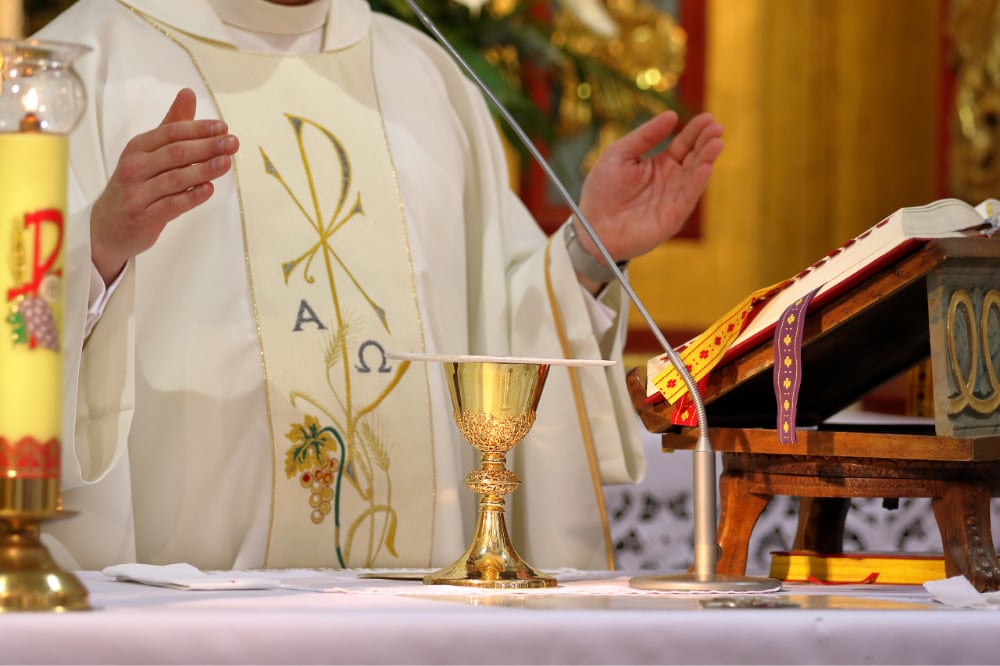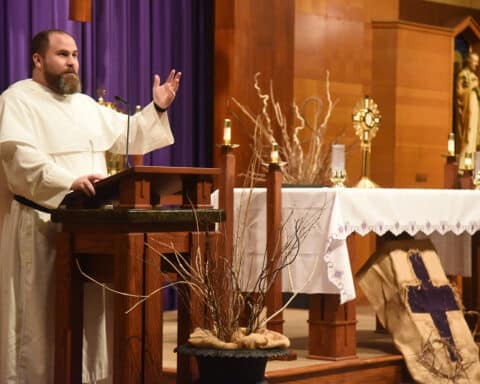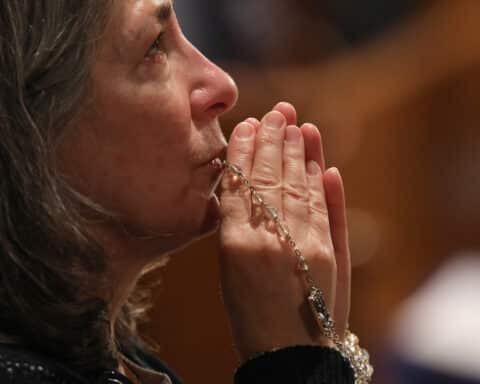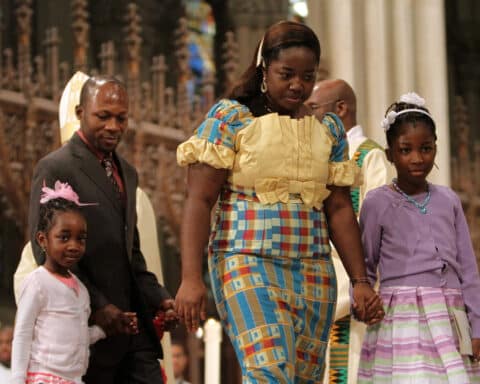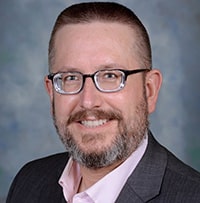
With those words, every priest begins the penitential act of each Mass in the novus ordo. And though I have heard them thousands of times in my life, those words have begun to resonate more and more as I have pondered the reasons why Catholic belief in the Real Presence of Christ in the Eucharist has waned over the last few decades.
As I wrote in my last column, the problem may not be that Catholics don’t know intellectually what the Church teaches about the Eucharist and why, but rather that their imagination has not been properly engaged to experience the Real Presence of Christ. Doctrine helps us understand what we have experienced and keeps us from misinterpreting it, but doctrine was never meant as a substitute for the experience itself. In fact, as each of the last three popes has stressed in his own way, when doctrine becomes separated from our encounter with Christ, it ossifies, hardens, becomes an abstraction or even an ideology rather than an intellectual distillation of the experience of a life lived through Christ, with Christ and in Christ (as the priest ends the Eucharistic Prayer at every Mass).
That encounter with Christ is the true work of the liturgy, the heart of those sacred mysteries that the priest invites us to prepare ourselves to enter into by calling to mind our sins. All too often, we gloss over his invitation, in part perhaps because we’re used to thinking of a mystery as a problem to be solved. But in the religious sense of the word, a mystery is an experience of the divine that we never fully grasp, no matter how often we participate in it.
As the priest prepares the contents of the chalice that will become, through the action of Christ himself in the liturgy, the blood of Christ, he prays: “By the mystery of this water and wine may we come to share in the divinity of Christ who humbled himself to share in our humanity.” In this life, we will never fully understand what it means to participate in the divinity of Christ, yet with the proper preparation, we can experience that participation when we receive his body and his blood.
Still, week after week, we approach the Eucharist with minds and hearts not fully prepared but occupied by the distractions of modern life. Our eyes see bread and wine, and our imaginations do not tell us otherwise. We utter “Amen” and walk back to our pews, rarely if ever truly grasping the fullness of the reality that we are eating Christ himself, offered up for us again and again in the eternal present of the Mass, a single sacrifice consummated 2,000 years ago on Mount Calvary and right here, right now to save us and unite us to him.
The mystery of the Eucharist is not a puzzle or a problem to be solved through the action of our intellect but a reality that we enter into through minds and hearts and wills formed by imaginative engagement with the mysteries of the Last Supper and of Golgotha. Likewise, the widespread lack of belief in the Real Presence is not a puzzle but a sign — a sign that the memory of Christ himself and his sacrifice has faded for modern man, that we no longer desire to enter into the mystery made present again in the liturgy so that we may die to self and be reborn in Christ.
We become what we desire. That is the mystery of our faith.
Scott P. Richert is publisher for OSV.

